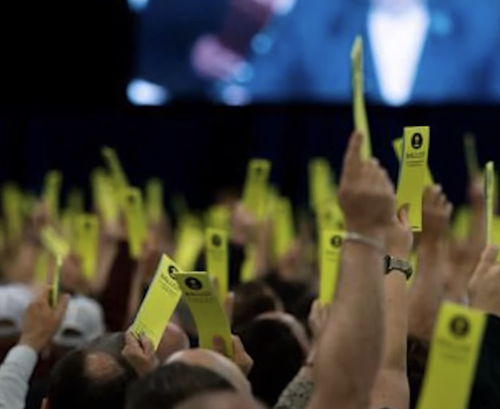A new report covered by Christianity Today’s Jayson Casper highlights “the 50 countries where it’s hardest to follow Jesus in 2024.”
Last week’s Plug-in focused on Iowa evangelicals and Donald Trump ahead of the caucuses.
After the former president’s big win in that state, The Associated Press’ Josh Boak and Linley Sanders, CT’s Harvest Prude and the Washington Post’s Dan Keating, Adrian Blanco and Clara Ence Morse analyze the critical role evangelicals played.
The New Hampshire primary is Tuesday, and Clemente Lisi details “everything you need to know about the candidates” at Religion Unplugged.
This is our weekly roundup of the top headlines and best reads in the world of faith.
What To Know: The Big Story
What motivates pro-lifers: The crowd at today’s annual March for Life in the nation’s capital could top 100,000, organizers predict.
Fifty-one years after Roe v. Wade — and a year and a half after its overturning — “evangelical activists see a bigger fight to change Americans’ minds on abortion.” That’s the synopsis from Christianity Today’s Harvest Prude.
A different mood: If last year’s rally marked a celebration for the anti-abortion movement, the 2024 event reflects “formidable challenges that lie ahead in this election year.”
So notes The Associated Press’ David Crary, who quotes a leading activist:
“We have undeniable evidence of victory — lives being saved,” said John Seago, president of Texas Right to Life. “But there is also a realization of the significant hurdles that our movement has right now in the public conversation.”
Crary explains:










